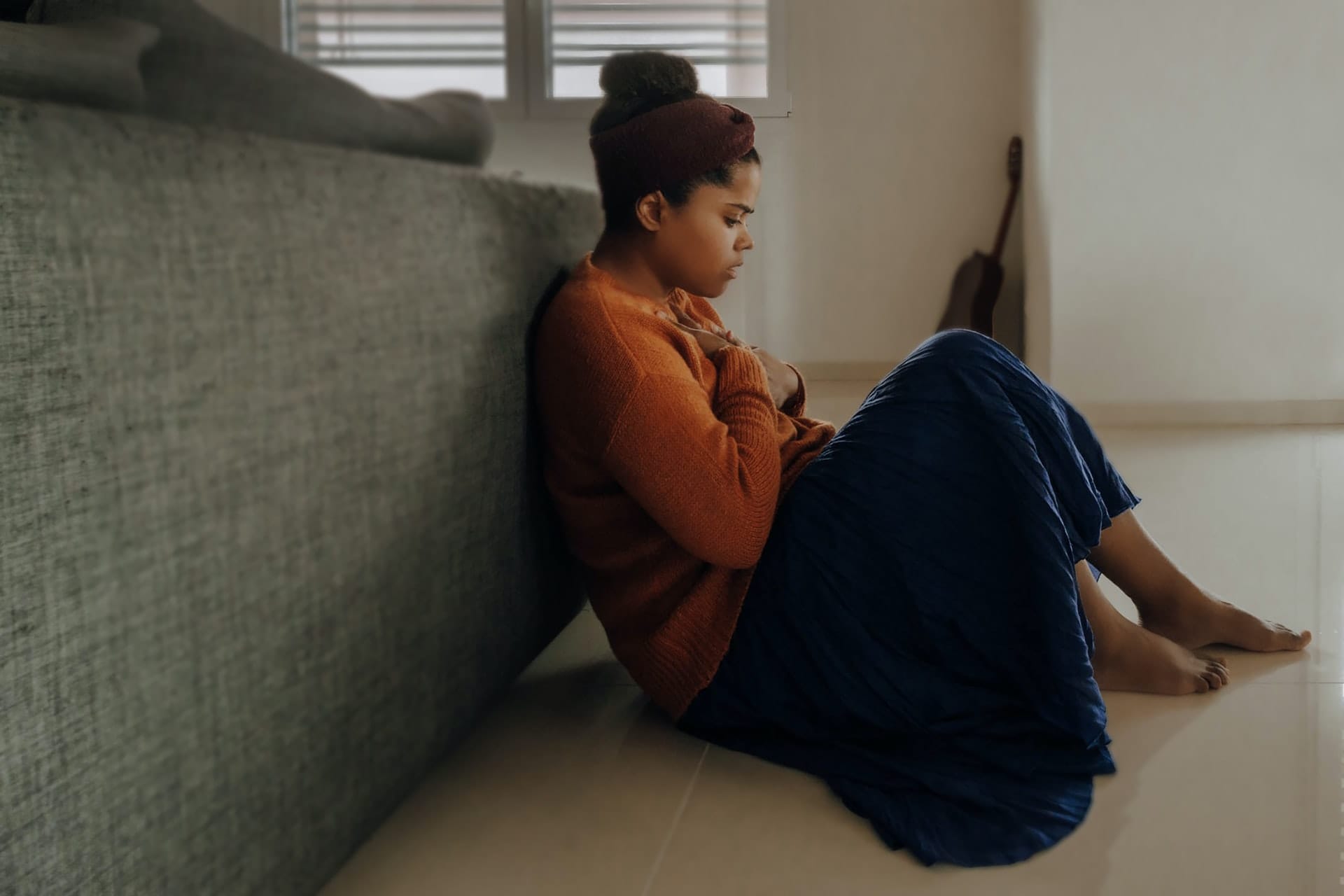Many events in life cause stress, and one of those events is loss. Loss affects us in profound ways, and we can’t always anticipate how we’ll respond to it. Grief and loss are inevitable on this side of heaven, and as a fact of life, that means we need to be equipped to cope well with it. Whether you are single or in a committed relationship with someone, coping with grief is a useful skill that we need to nurture.
Coping with grief requires understanding what it is, how it functions, and how it affects individuals. When you are in a relationship with another person and you experience a joint loss, you need to understand how both you and your partner are coping. The stress of grief can affect how you relate to each other. It’s possible for grief and your response to it to damage your relationship.
Understanding Grief
Grief is the emotional and psychological response to loss of any kind. Grief can be intense, disrupting how you think and function in daily life. It stirs up many complex emotions such as sadness, regret, anger, peace, and weariness. Grief is brought on by many things, including bereavement through the death of a loved one or family pet, the termination of a relationship, betrayal, or the loss of a cherished goal or dream, for example.
 What makes one person grieve might not affect another person at all. One’s response to loss will depend on many things, including the nature of the relationship, one’s personality, the nature of the loss, as well as what caused it, and the mental and emotional resources one has to deal with the loss.
What makes one person grieve might not affect another person at all. One’s response to loss will depend on many things, including the nature of the relationship, one’s personality, the nature of the loss, as well as what caused it, and the mental and emotional resources one has to deal with the loss.
Grief is often explained as unfolding in five stages: denial, anger, bargaining, depression, and finally acceptance. These stages depict what many people commonly experience as they grieve. They aren’t linear, and they don’t perfectly describe every situation or feeling that a person might experience due to grief. They are helpful, however, in showing us how grief can raise a wide range of emotional reactions.
Grief needs to be given space. It needs to be processed; otherwise, it can manifest later on as mental, emotional, and physical issues that affect a person’s well-being. While you might not deal with grief the same way as someone else, giving yourself room to grieve is a healthy thing to do. You must come to a place where you can function despite the loss and the ongoing feelings and thoughts it inspires.
Coping with Grief: Ways People Process
When loss happens, it happens in a context. That context will help shape what happens next. Grief can sometimes be pushed down or minimized. The person may feel like they need to move on quickly and get things done, such as making funeral arrangements or going to work to sustain the family’s income. In the moment, it may feel easier to shove certain thoughts and feelings deep down to deal with daily realities.
People respond to grief variably. Some people struggle to express difficult, unwanted, or overwhelming emotions, like sadness. They may respond by being stoic or overly positive. Other people will try to avoid these feelings by diving headfirst into work or by self-medicating with alcohol, food, or other substances. Others can become entirely incapacitated by the loss, spiraling into a deep funk.
 Some people face grief by using resources such as Scripture or their social network to deal with everything that grief brings. They acknowledge what they are feeling, taking each day as it comes as they process the reality of their loss. Facing loss in this manner isn’t easy, and things will often feel a lot worse before they become bearable.
Some people face grief by using resources such as Scripture or their social network to deal with everything that grief brings. They acknowledge what they are feeling, taking each day as it comes as they process the reality of their loss. Facing loss in this manner isn’t easy, and things will often feel a lot worse before they become bearable.
There isn’t a timeframe within which grieving should take place. Each person will cope with loss in their own way. The key is to try to come to terms with the loss, process the emotions the loss brings up, and to do so in a healthy manner.
The Effects of Grief on a Relationship
When you’re in a relationship with someone, the health of that relationship depends on your communication and ability to handle the stresses and strains that life places on you. This is easier said than done, but effective communication and emotional resilience are skills that can be learned and developed. When grief happens, it can test your relationship, challenging whether you and your loved one can process grief in your own way while supporting each other.
Harriet Schiff’s book suggested that over seventy-five percent of couples end up separating and divorcing after the loss of their child. This caused much confusion and heartache because it can lead a couple to anticipate that, in addition to their loss, it’s also likely that they will split up. That can cause additional stress, and it is quite unnecessary.
Even the best marriages can struggle under the strain of losing a loved one. A couple may experience communication problems or intimacy issues, which can create and widen the rift between spouses or partners. In the end, the loss can cause the couple to drift and experience significant marital difficulties following their loss.
However, subsequent research has challenged Schiff’s book and its conclusions. The research shows that only sixteen percent of parents who lost their child divorced on account of that, or due to the presence of marital problems the couple had before the loss. The loss of a loved one can indeed have an unexpected effect on a marriage by altering the way the couple feels about each other, but not to the extent previously thought.
People process grief differently. This, in combination with issues already present in the relationship, can cause problems. One spouse might seem as though they aren’t grieving enough, or the other might seem as though they are allowing themselves to be overly affected by grief. These differences in understanding as well as expressing individual grief can lead to misunderstandings and conflict. Loss can thus upset the balance in a relationship.
Ways to Grieve Together
People do not grieve in the same way, and that is okay. It’s important to understand that the way you process emotions and experiences, and that includes grief, will likely be different from how another person does it. Recognizing that there are these differences is a great first step toward grieving without damaging your relationship.
 It’s also helpful to be aware of the factors that play a role in causing stress for couples as they work through loss. These include the circumstances and causes of death, the differences in grieving styles that may exist between the spouses, the state and quality of the marriage before the loss, and whether the couple can handle anger well. For instance, one can misplace their anger and blame the other spouse.
It’s also helpful to be aware of the factors that play a role in causing stress for couples as they work through loss. These include the circumstances and causes of death, the differences in grieving styles that may exist between the spouses, the state and quality of the marriage before the loss, and whether the couple can handle anger well. For instance, one can misplace their anger and blame the other spouse.
A marriage or relationship that’s rocked by a significant loss can survive. Couples can even find themselves experiencing a deepening of their relationship as they learn how to cope with the loss, grow in compassion toward each other, and find healing from the trauma of loss. Some of the ways for a couple to grieve together in ways that aren’t damaging to their relationship include the following:
Maintaining good communication Keeping the lines of communication open is key. Grief can isolate you, so keep the lines open so that you can share concerns and support each other.
Accepting your spouse’s grieving style Your spouse doesn’t necessarily grieve the way you do. That doesn’t mean they aren’t feeling the loss in the same way you are, or that they don’t care. Each person finds ways to grieve that make sense to them. Being able to give each other grace to grieve in a deeply personal way makes a lot of difference.
Committing to one another The couple needs to commit to each other despite the stress and strain they are under. Reaffirming that you are for each other helps you to continue investing in your relationship meaningfully.
Finding help A couple can support each other, but it’s also good for them to develop a much wider support system. One such source of support is through counseling, which can help you to deal with the complicated emotions loss evokes.
Coping with Grief Through Christian Counseling
Through counseling, you can gain perspective on the loss as well as your other relationships. Your grief counselor in Texas will also help you develop skills such as good communication so that you can express your thoughts, concerns, and feelings to your spouse without blaming or shaming them. Likewise, you can learn to cope with loss together and build a stronger relationship than before.
If you feel ready to work with a Christian grief counselor in Texas, reach out to our offices today. We can connect you with a qualified grief therapist in Texas who can walk you and your spouse through your grief together.
Photos:
“Hug”, Courtesy of Polina Kuzovkova, Unsplash.com, Unsplash+ License; “Sitting on the Dock”, Courtesy of Vije Vijendranath, Unsplash.com, CC0 License; “Cuddling Couple”, Courtesy of Federica Giacomazzi, Unsplash.com, Unsplash+ License
- Kate Motaung: Curator
Kate Motaung is the Senior Writer, Editor, and Content Manager for a multi-state company. She is the author of several books including Letters to Grief, 101 Prayers for Comfort in Difficult Times, and A Place to Land: A Story of Longing and Belonging...
DISCLAIMER: THIS ARTICLE DOES NOT PROVIDE MEDICAL ADVICE
Articles are intended for informational purposes only and do not constitute medical advice; the content is not intended to be a substitute for professional medical advice, diagnosis, or treatment. All opinions expressed by authors and quoted sources are their own and do not necessarily reflect the opinions of the editors, publishers or editorial boards of Stone Oak Christian Counseling. This website does not recommend or endorse any specific tests, physicians, products, procedures, opinions, or other information that may be mentioned on the Site. Reliance on any information provided by this website is solely at your own risk.






